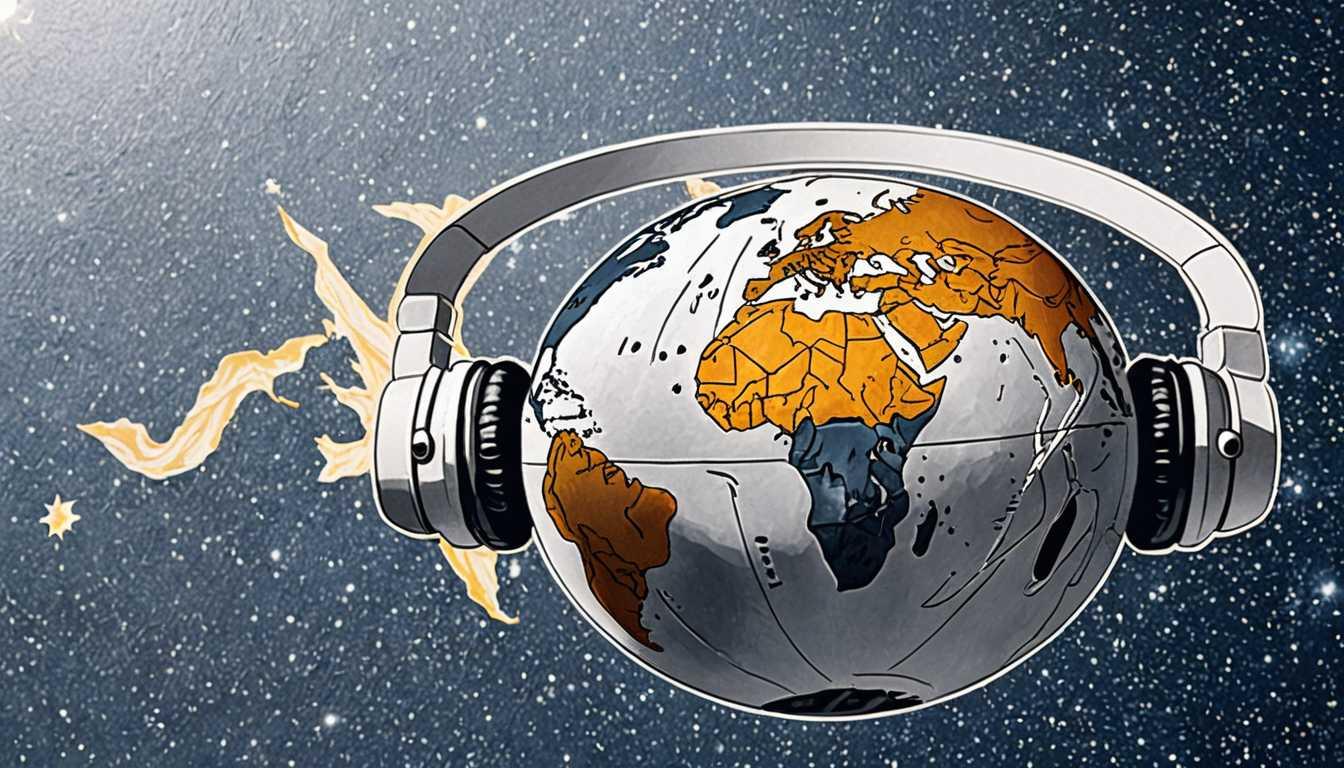Harmony Unchained: Beyond Pythagoras
February 2024
University of Cambridge
Introduction
Dive into a mind-bending journey with Pythagoras was wrong: there are no universal musical harmonies, study finds from the University of Cambridge. Ever thought those catchy tunes stuck in your head were all about perfect mathematical ratios? Think again! This groundbreaking research reveals our love for a bit of musical imperfection and throws a spotlight on the unique sounds of non-Western instruments like the Javanese bonang. Forget ancient Greek philosophy; it's time to explore the wild, wide world of global harmonies. Ready to challenge everything you thought you knew about music?
READ FULL ARTICLEWhy It Matters
Discover how this topic shapes your world and future
Harmonies Unchained
Imagine living in a world where every song, every chord, and every musical note followed a strict set of mathematical rules. Sounds a bit limiting, right? Well, for centuries, that's exactly how many thought music worked, thanks to the Ancient Greek philosopher Pythagoras. He believed that the beauty of music came from precise numerical relationships. Fast forward to today, and researchers have discovered that the musical universe is much broader and more diverse than Pythagoras ever imagined. This revelation not only challenges long-standing beliefs but also opens up a whole new playground for musicians and music lovers alike. For you, this could mean the music you create or enjoy doesn't have to fit into a predefined box. Instead, it can be a reflection of a vast array of cultures, instruments, and personal tastes. The implications are global, bridging cultural divides and expanding our understanding of what music can be. This topic might resonate with you as you explore your own musical preferences or even as you think about how music from different parts of the world can influence your own creations.
Speak like a Scholar
Consonance
A combination of notes that sounds pleasant to the ears. Traditionally, this was thought to be due to simple numerical ratios.
Dissonance
A combination of notes that sounds harsh or unpleasant. It was believed to result from deviations from these simple ratios.
Inharmonicity
The degree to which the frequencies of overtones deviate from whole number multiples of a fundamental frequency, causing a slight imperfection in sound.
Timbre
The quality or color of a musical sound that makes it unique. For example, a violin and a flute playing the same note sound different because of their timbre.
Psychoacoustic
Relating to the perception of sound and its psychological effects. It studies how we hear and what makes certain sounds pleasing or annoying.
Cultural Ethnomusicology
The study of music from the cultural and social aspects of the people who make it. It looks at music as a reflection of society and culture.
Independent Research Ideas
Exploring the Musical Scales of Non-Western Cultures
Dive into how different cultures create their music outside the Western tradition. What makes their harmony unique, and how does it reflect their society?
The Psychology of Sound
Investigate how different sounds affect our emotions and why. This could include studying the impact of inharmonicity on our perception of music.
Innovations in Musical Instruments
Design or conceptualize a new musical instrument that produces sounds or harmonies not possible with current instruments. What new music could this instrument inspire?
The Evolution of Musical Tastes
How have musical preferences changed over time and across cultures? This could involve analyzing current trends and predicting future shifts in music appreciation.
The Role of Technology in Shaping Music
Examine how advancements in technology have allowed for new types of music to be created and enjoyed. How might future technologies further change the musical landscape?
Related Articles

Nap Your Way to Creativity
May 2023
Massachusetts Institute of Technology (MIT)

Doodles Decoded: Kids' Art Insights
February 2024
Stanford University

Unraveling Sentence Mysteries with MIT
December 2022
Massachusetts Institute of Technology (MIT)

Music: The Universal Language of Personalities
February 2022
University of Cambridge

Numbers in Verse: A Poetic Equation
April 2018
Smithsonian Magazine